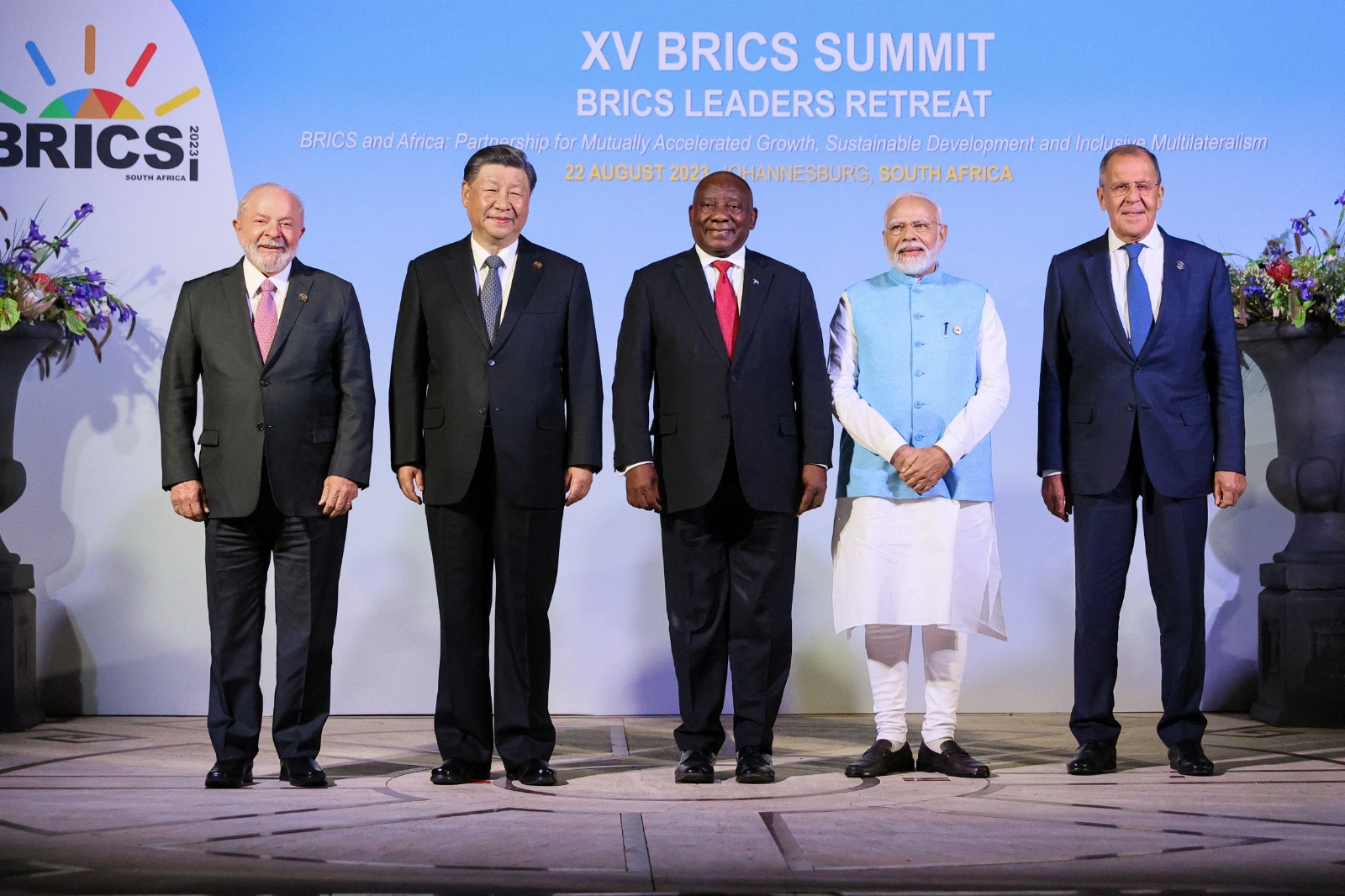Amid speculations of a common currency between BRICS members, Brazil’s President Luiz Inacio Lula da Silva supported the idea of a common trading currency for the members on August 22 at the BRICS Business Forum.
In his virtual address, Russian President Putin also spoke of encouraging trade in local currencies within the BRICS. He said, “The objective and irreversible process of the de-dollarization of our economic ties is gaining pace. We are working to fine-tune effective mechanisms for mutual settlements and monetary and financial control.” Further, he added that “As a result, the share of US dollar in export and import operations within the BRICS is declining: last year it stood at only 28.7 percent.”
It is pertinent to note that India’s External Affairs Minister, Dr. S. Jaishankar, has already stated that India has no plans for a BRICS currency. Indian Foreign Secretary Vinay Mohan Kwatra also clarified India’s stance in a media briefing, emphasising India’s intent to boost trade using its own currency.
De-dollarization: an irreversible process
In the present geopolitical scenario, there has been a growing demand among countries to trade in currencies other than the US dollar. The BRICS countries (Brazil, Russia, India, China, and South Africa) are also among them. The dominance of the US dollar has granted the United States significant power to shape global economic affairs. However, this concentration of influence also makes other countries susceptible to external economic shocks, such as shifts in US monetary policy and trade tensions.
China and Russia are aggressively pursuing the process of de-dollarization for their political and economic interests and to dethrone the USA’s hegemony in international trade. De-dollarization offers countries greater economic sovereignty by enabling them to transact in their own currencies, reducing their reliance on a foreign monetary system.
Brazil’s President Lula da Silva has voiced support for the idea of a common currency among the BRICS nations. “I am in favour of creating, within the BRICS, a trading currency between our countries, just like the Europeans created the euro,” said Lula during a speech in April.
Notably, India’s resistance to a common BRICS currency does not translate into its reluctance to de-dollarize; rather, it is because India has a multi-billion-dollar trade with both the US and Europe and does not want to jeopardise its relations and economic interests.














